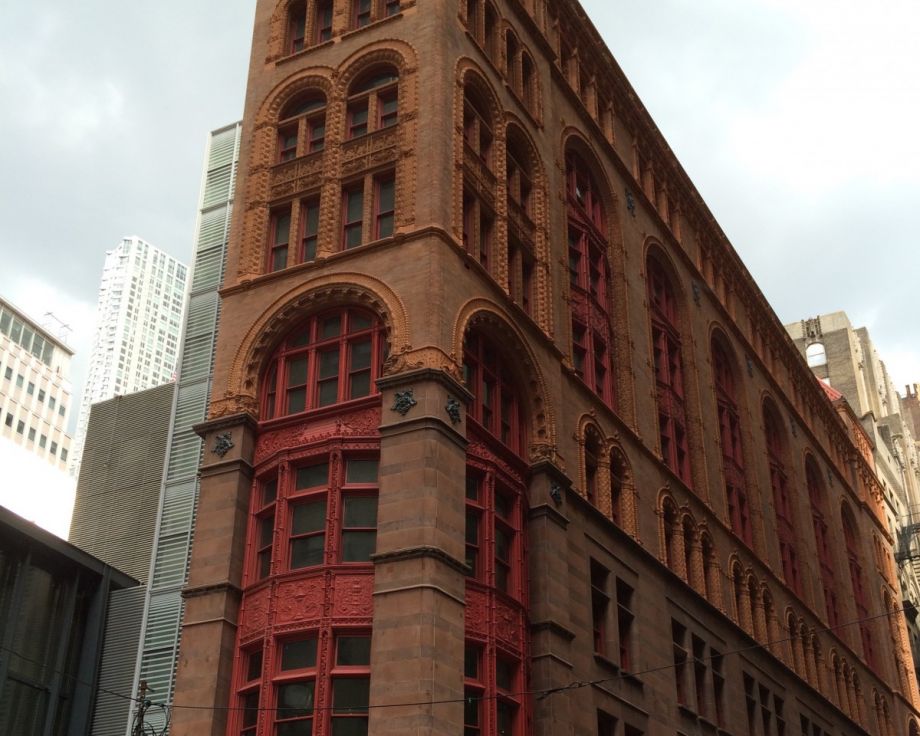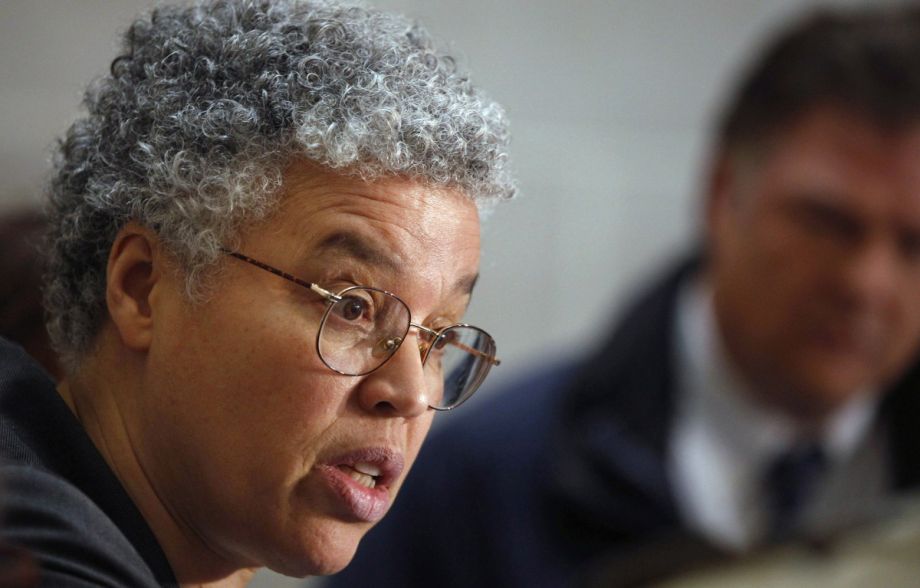21 Broadway Buildings Fail to Get Historic Preservation Stamp

NYC’s Landmarks Preservation Commission voted to include the Corbin Building in an expanded historic district. (Photo by PointsofNoReturn)
Just months after New York City’s Landmarks Preservation Commission celebrated its 50th anniversary, it has excluded 21 Broadway buildings from a new preservation plan.
A vote last week determined that the Riverside-West End Historic District will now include more than 1,250 buildings overlooking the Hudson River from 70th Street north, but 21 buildings on Broadway will not be protected. Lisa Kersavage, the commission’s director of special projects and strategic planning said their decision not to vote to preserve those buildings was “because of the heterogeneous and commercial character of the Broadway streetscape.”
According to the New York Times:
After five years of study, the city’s Landmarks Preservation Commission decided last week that 21 buildings on Broadway that it had considered protecting were unworthy of that honor. In a unanimous vote that took many by surprise, the commission decided that the buildings, all between 89th and 109th Streets, and built between 1871 and 1927, would be excluded from an expansion of the Riverside-West End Historic District.
The decision has been controversial. Many feel that these buildings are part of the life of the neighborhood.
“This is exactly the kind of building you’d find on West End or Riverside, the kind of building the commission deemed so worthy of protection,” Sean Khorsandi, director of advocacy at Landmarks West, a preservation group, told the Times. “Its only crime is its location, not its design.”
But many developers think too much preservation keeps the city from being able to evolve. “Broadway by its very nature is change,” Robert C. Quinlan, the founder of Quinlan Development Group, told the Times. “Preservation is certainly good, but it can be very onerous for businesses.”
Jenn Stanley is a freelance journalist, essayist and independent producer living in Chicago. She has an M.S. from the Medill School of Journalism at Northwestern University.
Chicago Could Get Sales Tax Increase to Dig Out of Pension Hole
Cook County Board President Toni Preckwinkle (AP Photo/M. Spencer Green, File)
The City of Chicago is in some obvious financial trouble, and Cook County Board President Toni Preckwinkle is trying to do something about it. Preckwinkle is hoping to secure enough votes to raise county sales tax by a penny on the dollar. She believes that raising property or sales tax is the only to way raise the amount of money needed to address they county’s budget shortfall, which is mostly driven by pensions. According to the Chicago Tribune, Preckwinkle says the fund is short by $6.5 billion and that number grows by $30 million each month. While she doesn’t think she could ever get the votes to raise property tax, she thinks the sales tax is her best option.
“There is a path for getting nine votes for a sales tax increase,” Preckwinkle told the Tribune.
According to the Tribune:
So far, only two commissioners say they are firm “yes” votes and only three say they are firm “no” votes, with a wide spectrum of opinion between. That leaves plenty of wiggle room on the 17-member board for Preckwinkle to have a shot at the nine votes needed for passage.
Two of the undecided commissioners said they were leaning toward voting for the tax increase. One said he’s undecided but called it a “viable option.” And three others either aren’t talking or won’t show their hand but are Preckwinkle allies who have supported a higher sales tax in the past.
Preckwinkle has some dissenters in her own party. Commissioner Larry Suffredin, who was negotiated into agreeing to a similar increase seven years ago does not think the county should go down this road a second time. He told the Tribune that he doesn’t think the extra $473 million a year it could raise is needed.
“We’ve tried this and it didn’t work,” Suffredin told the Tribune. “It is regressive and it hurt many of our citizens and businesses in our communities.”
Jenn Stanley is a freelance journalist, essayist and independent producer living in Chicago. She has an M.S. from the Medill School of Journalism at Northwestern University.




No comments:
Post a Comment
Please leave a comment-- or suggestions, particularly of topics and places you'd like to see covered